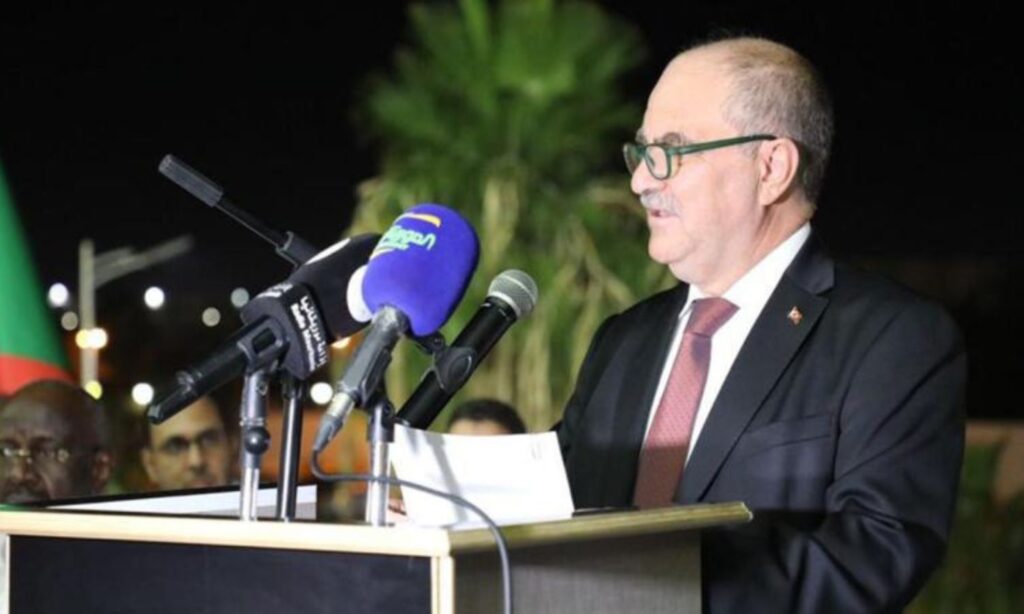Turkey appointed a chargé d’affaires for its embassy in Damascus on Thursday, December 12.
The Turkish Anadolu Agency reported, citing sources in the Ministry of Foreign Affairs, that Ankara issued a decision to appoint Burhan Köroğlu, who was Turkey’s ambassador to Nouakchott in Mauritania, as the temporary chargé d’affaires of the Ankara embassy in Damascus until a new ambassador is appointed to Syria.
The agency added that Foreign Minister Hakan Fidan informed Köroğlu of his new position.
Who is Burhan Köroğlu?
Ambassador Burhan Köroğlu was born in Istanbul in 1962. After graduating from the Philosophy Department at Istanbul University, he completed his master’s degree at Jordan University and his PhD in Islamic Philosophy at Marmara University, as reported by the Turkish Sözcü newspaper.
Köroğlu served as a faculty member at Marmara University, Middlebury College (USA), Jordan University, Bahçeşehir University, and Ibn Khaldun University, and most recently was a professor at the Middle East and Islamic Studies Research Institute at Marmara University.
He has held various positions such as Director of Bahçeşehir University’s Civilization Research Center (MEDAM), Director of the Social Sciences Institute at Ibn Khaldun University, Head of the Philosophy Department at Ibn Khaldun University, and a researcher at Al Jazeera Research Center in Qatar.
Burhan Köroğlu, who served for a time as the Chairman of Turkish Al Jazeera Television, holds copyrights and translations of published works in Turkish, Arabic, and English related to Islamic philosophy, political thought, and Turkish-Arab relations.
Turkish delegation in Damascus
The appointment of a Turkish diplomat to Syria came following a visit by a Turkish delegation to Damascus yesterday, marking the first of its kind in 13 years.
This visit is the first by a diplomatic delegation after the fall of the ousted Bashar al-Assad regime.
A correspondent from Enab Baladi in Damascus reported that a Turkish delegation arrived in the capital, Damascus, accompanied by a convoy comprising Turkish officials, including the head of the intelligence agency, Ibrahim Kalin.
The delegation traveled in a car driven by the Commander of the General Command, Ahmed al-Sharaa (al-Jolani), in a convoy that included several vehicles and escorts from both sides.
Last ambassador in 12 years
The last ambassador Turkey had in Syria was Ömer Önhon, but following the beginning of the ousted Syrian regime’s crackdown on protesters at the start of the revolution in 2011, Turkey decided to withdraw him from Syria in March 2012, while the General Consulate in Istanbul continued its activities.
On December 11, Önhon commented on the rapid developments in Syria and the fall of al-Assad.
Önhon told CNN, “The transitional period, of course, has now become very important in this era, and who will manage this transition is the main question, and now they have appointed Mr. al-Bashir as the interim head of the caretaker government. I do not know who will be appointed as ministers.”
He added, “Everyone is wondering whether the ministers who will be appointed will only be from Hayat Tahrir al-Sham or from other factions as well, because as everyone is saying now, it is very important to have an inclusive government, a comprehensive system that opposes one-person rule by Bashar al-Assad.”
He emphasized that Ankara is one of the key players in Syria due to geography and the historical and social relations, adding, “I believe that Turkey will be one of the active parties that will help shape Syria in the future; we have an interest in that, I mean in terms of security, and Turkey hosts about three million Syrians, and we want to return them to their country in a safe environment.”
The last Turkish visit to Syria was on August 9, 2011, when then-Turkish Foreign Minister Ahmet Davutoğlu visited Syria and met with al-Assad, as well as visited Hama, which was experiencing military tensions amid peaceful protests calling for the overthrow of the Assad regime.
Davutoğlu’s visit marked the beginning of a deterioration in relations between Ankara and Damascus, culminating in a political rift that lasted until the ousting of al-Assad on December 8.











